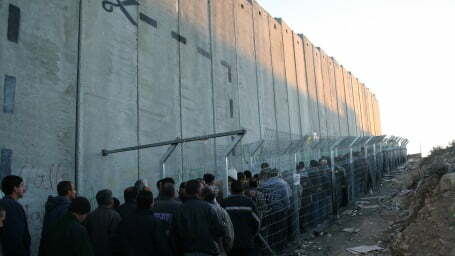In an interview with Haaretz yesterday, MK Aryeh Eldad defended the right-wing initiative to turn Jordan into a Palestinian state, claiming that a Palestinian takeover of Jordan and the overthrow of the Hashemite regime are in any case a matter of time. Such a scenario, in his view, would be a "huge advantage for Israel in the eyes of the world." Eldad does not believe that Israel should encourage the overthrow of the regime, but he can, in his opinion, "come to terms with the fact that Jordan is the one who represents the Palestinian people."
I do not want to argue with some of Eldad's basic claims, most notably his estimate that the Palestinians are a 70-80 percent majority of Jordanian citizens. The question is, of course, how a "Palestinian" is defined in Jordan and who is responsible for awarding the coveted title. In this matter, it seems that it is easier to reach an agreement on the question of who is a Jew in Israel than who is a Palestinian in Jordan. To me, however, this is a marginal point for the discussion itself. The two essential questions are, first, in the "existing" realm – whether the Hashemite regime is indeed doomed; And second, in the "desirable" area – whether Israel should support, openly or secretly, the establishment of a Palestinian state in Jordan, in the assessment that this will help resolve the Palestinian issue. I would like to address these questions below.
At the current level, the Hashemite regime is not the heart of the matter, as in Egypt not Mubarak was the heart of the matter: the strength of the existing order, or, in the case of Jordan, the trans-Jordanian dominance (the "tribes") in the political-security decision-making process is the fundamental issue. Even if the Hashemite regime falls, or its powers are gradually eroded, it does not mean that the former Jordanian dominance will be harmed, and perhaps vice versa. Therefore, the question to be asked is whether Israel has an interest in threatening the Trans-Jordanian elite. If the answer is no, then Eldad's position should be rejected. If the answer is yes, then the surest way to do so is to do the Eldad act.
The Trans-Jordanian elite, and especially the military-security establishment in Jordan, have long feared that Israel will seize every opportunity to resolve the Palestinian problem at the expense of Jordan. In recent years, and due to the strengthening of the right and the migration of the "alternative homeland" discourse to the moderate right and even to the political center in Israel, the trans-Jordanian fear has become a real suspicion. Last year, the issue was also discussed, with considerable concern, at the Jordanian Army's National Security Academy. The deepening of the public discourse and the political-political engagement in Israel in making Jordan an alternative homeland for the Palestinians will open a very difficult, perhaps irreconcilable, rift in the fragile trust relationship between the two countries, and will degenerate both into sharp preventive and responsive measures. Eldad is aware of this, and therefore accepts in principle the position of decision-makers in Israel that it should not be engaged in publicly.
Here the discussion moves to the strategic, desired level. Eldad believes that many of the decision-makers in Israel "would have openly or secretly welcomed the establishment of a Palestinian state in Jordan." I believe that his words are not unfounded. In recent years (and even more so in recent months) Israel has been preparing for a new Middle East controlled by Hezbollah, Hamas and the Muslim Brotherhood, and these will be deterred not by peace agreements but by Israel's military superiority. It is better, of course, for the neighboring countries to cooperate with Israel in securing its borders, but Israel is preparing to be able to take care of itself. Therefore, if Israel appreciates that a Palestinian state in Jordan will assist it in resolving the Palestinian issue, there may be scenarios in which the security risk posed by such a state will balance with the political prospect it offers, leading to a re-examination of Israel's position toward Jordan.
Israel's ability to influence what is happening in the intra-Jordanian arena is limited, and therefore it takes great care in relation to the Hashemite regime and the Trans-Jordanian elite. In my opinion, this is a justifiable position from a political-security and even a value point of view. My disagreement with Eldad is in principle: strategic planning and tactical moves will only bear fruit if Israel knows how to harness its friends and partners in the region for political moves that will serve all parties. It must do so from a position of cooperation and not in a "single people will dwell" approach, while forcing the other and forcing him, as Eldad implies. How can Israel do this in relation to the Jordanian-Palestinian issue, and especially in relation to Jordan and the West Bank? About this in the next article.

















